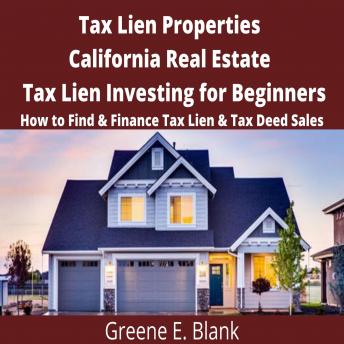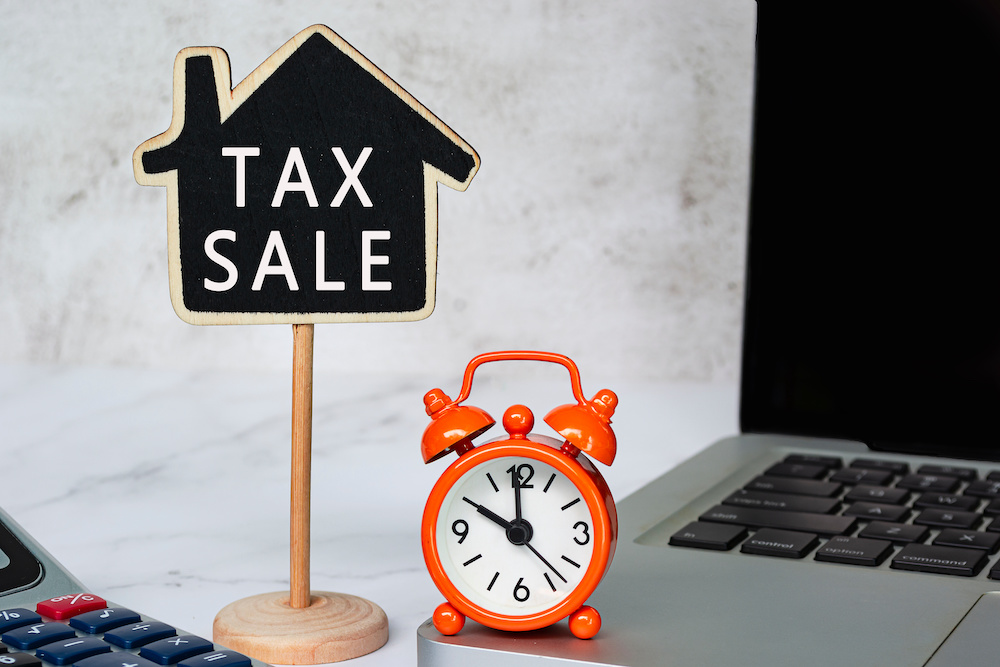All Categories
Featured
Table of Contents
Tax lien investing can provide your profile direct exposure to property all without having to in fact have residential or commercial property. Specialists, nevertheless, state the process is complicated and alert that amateur investors can conveniently get melted. Below's everything you require to understand about buying a tax obligation lien certificate, consisting of how it works and the dangers included.
The notice typically comes before harsher actions, such as a tax obligation levy, where the Internal Profits Solution (INTERNAL REVENUE SERVICE) or regional or local federal governments can really seize somebody's building to recoup the financial debt. A tax lien certification is developed when a homeowner has fallen short to pay their taxes and the city government issues a tax lien.
Tax lien certificates are typically auctioned off to financiers aiming to revenue. To recover the overdue tax obligation dollars, municipalities can after that market the tax lien certificate to private capitalists, who take treatment of the tax bill in exchange for the right to collect that cash, plus interest, from the homeowner when they at some point repay their equilibrium.
Risks Of Investing In Tax Liens
enable for the transfer or assignment of delinquent genuine estate tax liens to the exclusive field, according to the National Tax Lien Organization, a nonprofit that stands for governments, institutional tax obligation lien investors and servicers. Right here's what the procedure resembles. Tax obligation lien financiers have to bid for the certificate in an auction, and just how that procedure works relies on the particular community.
Contact tax obligation authorities in your location to ask exactly how those overdue taxes are collected. Public auctions can be online or in person. In some cases winning bids go to the financier prepared to pay the least expensive rates of interest, in a technique called "bidding down the rates of interest." The district establishes an optimum rate, and the prospective buyer offering the lowest rates of interest underneath that maximum wins the public auction.
Various other winning proposals go to those who pay the highest possible cash quantity, or costs, over the lien quantity. What occurs next for financiers isn't something that occurs on a stock market. The winning bidder has to pay the entire tax obligation expense, including the overdue financial obligation, passion and penalties. The investor has to wait up until the residential or commercial property proprietors pay back their whole equilibrium unless they don't.
While some investors can be awarded, others may be captured in the crossfire of challenging regulations and technicalities, which in the worst of conditions can lead to substantial losses. From a plain earnings point ofview, the majority of capitalists make their cash based upon the tax obligation lien's rates of interest. Rate of interest differ and depend on the jurisdiction or the state.
Earnings, nonetheless, don't always total up to returns that high throughout the bidding procedure. In the long run, many tax obligation liens bought at auction are sold at prices between 3 percent and 7 percent country wide, according to Brad Westover, executive director of the National Tax Lien Association. Before retiring, Richard Rampell, previously the president of Rampell & Rampell, an accountancy firm in Hand Coastline, Florida, experienced this direct.
Tax Lien Investing Scam
In the beginning, the partners did well. After that large institutional investors, including banks, hedge funds and pension funds, chased those greater yields in auctions around the country. The larger financiers helped bid down rate of interest, so Rampell's group wasn't making significant money anymore on liens. "At the end, we weren't doing better than a CD," he says - how does tax lien investing work.
But that hardly ever takes place: The tax obligations are typically paid prior to the redemption day. Liens likewise are initial eligible repayment, also prior to mortgages. Nevertheless, tax obligation liens have an expiry day, and a lienholder's right to seize on the property or to accumulate their investment runs out at the same time as the lien.
Private investors who are considering financial investments in tax liens should, above all, do their homework. Experts suggest avoiding residential or commercial properties with environmental damages, such as one where a gas terminal dumped dangerous material.
Tax Lien Real Estate Investing
"You should actually comprehend what you're buying," claims Richard Zimmerman, a companion at Berdon LLP, an audit company in New York City. "Know what the residential or commercial property is, the neighborhood and worths, so you do not buy a lien that you will not be able to collect." Prospective capitalists ought to additionally look into the property and all liens against it, as well as current tax obligation sales and sale prices of comparable homes.
Yet, bear in mind that the details you find can usually be obsoleted. "Individuals obtain a listing of residential or commercial properties and do their due persistance weeks prior to a sale," Musa says. "Fifty percent the properties on the listing may be gone since the taxes obtain paid. You're wasting your time. The closer to the date you do your due persistance, the much better.
Risks Of Investing In Tax Liens

Westover says 80 percent of tax obligation lien certificates are marketed to participants of the NTLA, and the company can typically compare NTLA members with the best institutional investors. That might make managing the procedure simpler, especially for a novice. While tax lien investments can offer a generous return, recognize the small print, details and guidelines.
"However it's complicated. You need to comprehend the information." Bankrate's added to an upgrade of this story.
Property tax obligation liens are an investment niche that is ignored by the majority of financiers. Buying tax obligation liens can be a lucrative though relatively dangerous organization for those that are educated regarding genuine estate. When individuals or organizations stop working to pay their real estate tax, the towns or other government bodies that are owed those tax obligations place liens against the homes.
Real Estate Tax Lien Investments For Tax-advantaged Returns
These claims on security are also exchanged among capitalists that intend to generate above-average returns. With this process, the community gets its taxes and the financier gets the right to gather the quantity due plus rate of interest from the borrower. The process hardly ever finishes with the capitalist confiscating possession of the home.
If you require to foreclose, there may be other liens against the residential or commercial property that maintain you from taking property. You can additionally spend indirectly by means of home lien funds.
It effectively locks up the building and avoids its sale till the owner pays the taxes owed or the home is seized by the lender. When a landowner or property owner stops working to pay the taxes on their residential property, the city or area in which the home is situated has the authority to position a lien on the home.
Property with a lien affixed to it can not be offered or refinanced until the taxes are paid and the lien is removed. When a lien is released, a tax obligation lien certification is produced by the town that shows the amount owed on the residential property plus any type of passion or charges due.

It's estimated that an additional $328 billion of real estate tax was analyzed throughout the U.S. in 2021. The trend continues. Taxes on single-family homes were approximated to increase approximately 3.6% in 2022, to a total amount of $339.8 billion, and by 6.9% in 2023, to $363.3 billion. It's difficult to assess nationwide real estate tax lien numbers.
Table of Contents
Latest Posts
Surplus Funds Forms
List Of Tax Foreclosures
Investing In Tax Liens Certificates
More
Latest Posts
Surplus Funds Forms
List Of Tax Foreclosures
Investing In Tax Liens Certificates